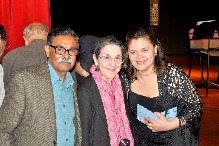new posts in all blogs
Viewing: Blog Posts Tagged with: Fate, Most Recent at Top [Help]
Results 1 - 10 of 10
How to use this Page
You are viewing the most recent posts tagged with the words: Fate in the JacketFlap blog reader. What is a tag? Think of a tag as a keyword or category label. Tags can both help you find posts on JacketFlap.com as well as provide an easy way for you to "remember" and classify posts for later recall. Try adding a tag yourself by clicking "Add a tag" below a post's header. Scroll down through the list of Recent Posts in the left column and click on a post title that sounds interesting. You can view all posts from a specific blog by clicking the Blog name in the right column, or you can click a 'More Posts from this Blog' link in any individual post.

By: Alice,
on 7/3/2014
Blog:
OUPblog
(
Login to Add to MyJacketFlap)
JacketFlap tags:
Classics & Archaeology,
the iliad,
OUP USA HE,
Barry B. Powell,
ancient greek gods,
m9jibao,
xjrydg8wjk0,
omnibenevolent,
kobctlfwata,
k42s04_kk9q,
Books,
Videos,
fate,
odyssey,
iliad,
higher ed,
the odyssey,
gods,
Humanities,
free will,
*Featured,
Add a tag
The Ancient Greek gods are all the things that humans are — full of emotions, constantly making mistakes — with the exception of their immortality. It makes their lives and actions often comical or superficial — a sharp contrast to the humans that are often at their mercy. The gods can show their favor, or displeasure; men and women are puppets in their world. Barry B. Powell, author of a new free verse translation of Homer’s The Odyssey, examines the gods, fate, divine interventions, and what it means in the classic epic poem.
Fate and free in The Iliad and The Odyssey
Click here to view the embedded video.
What role do the Gods play in The Iliad and The Odyssey?
Click here to view the embedded video.
Who is Hercules and how does he play a role in The Odyssey?
Click here to view the embedded video.
Greek Gods versus modern omnibenevolent God
Click here to view the embedded video.
Barry B. Powell is Halls-Bascom Professor of Classics Emeritus at the University of Wisconsin, Madison. His new free verse translation of The Odyssey was published by Oxford University Press in 2014. His translation of The Iliad was published by Oxford University Press in 2013.
Subscribe to the OUPblog via email or RSS.
Subscribe to only classics and archaeology articles on the OUPblog via email or RSS.
The post Gods and men in The Iliad and The Odyssey appeared first on OUPblog.

With blog problems these past few days, I'm behind in my posting. Last Friday was a fabulous evening at Torre Vilariño (a later post and photos will come), and we spent both Saturday and Sunday in Monforte enjoying the Medieval Faire (again, a later post and pictures will come).
First, though, I have to share a concert we attended in Quiroga by a fabulous fadista (Fado singer)— María do Ceo. She's very popular here and famous worldwide.
I first heard María do Ceo sing last June when she gave a concert at Rectoral de Castillon. At that time, I bought the CD shown to your left, and I blogged about it
HERE. It was an unforgettable evening, and my first exposure to Fado. (That was when Rajan and I we were taking turns with trips while the other nursed our ailing dog during his last days.) When I returned home and played the CD for Rajan, he loved Fado. Attending one of her concerts became a priority for this trip.
We went with friends Craig and Melanie, who hadn't heard Fado before, and they became converts, too. At the end of the concert, we gathered with others to get María do Ceo's autograph. She is a remarkable performer, and very down-to-earth and unpretentious after performances. Everyone was having their picture taken with her, and she welcomed us to have our picture with her too. What a treat!
 |
After a long concert, she
still had buoyant energy
as she signed autographs. |
 |
She took time to converse
with people who lingered.
A truly gracious person. |
 |
She remembered my name (from FB
and the early blogpost.) A very
modest celebrity who makes you
feel welcome and at home. |
 |
| I enjoyed introducing her and Rajan. |
 |
She was kept pretty
busy with autographs. |
You can go to her website and see her CD's
HERE.
We bought a new CD that we enjoy as much as the first one, and now I wish I had bought more. Each one is unique. The one we bought isn't shown in the Discography section on her website above. But there are many performances by her on YouTube at
this site, so you can get a feel for her singing.
Fado, as I mentioned in my earlier post, is a distinctive art form of Portugal, similar in one sense to American Blues, in that it is emotional and comes from deep in the heart and soul. But Fado has a variety of influences, one of them Moorish, and you can hear that in the warbling minor trills in some of the songs. The word itself means "Fate." Usually the songs are about deep yearning and thwarted dreams. Some of them can have a cheerful beat, but it's a fatalistic cheer, dealing with life's outcomes. It's not depressing, though. It's a response to what life deals you. I'm hooked on Fado, and if I can find another Fado concert, I will. Unfortunately, we will be gone before María do Ceo's next concerts in Galicia, but we will watch her schedule and hope to hear her during our next visit in the fall.
María do Ceo is from Portugal, but she lives in Ourense, Galicia. Her songs are in Portuguese, but her singing is quite popular all over Galicia.
Gallego, or
Galego, or
Galician—all are accepted names for the Galician language—is a sister language to Portuguese, so all her songs are understandable to Galicians. I read recently that Gallego and Portuguese share 85% of vocabulary. Our neighbors, in fact, have told us if we knew Portuguese, we would be able to understand Gallego.
Meanwhile, I hope you will visit her website and enjoy the video site
HERE. I strongly recommend "Lela" and "Negra Sombe". But, really, they are all good.
How about you? Do you have favorite music genre? A favorite singer? Please share.


By: Nicola,
on 2/1/2012
Blog:
OUPblog
(
Login to Add to MyJacketFlap)
JacketFlap tags:
obesity,
Food,
exercise,
genetics,
fate,
biology,
diet,
fat,
nutrition,
hanson,
overweight,
slimming,
peter gluckman,
communicable,
developmental,
lifestyle,
disease,
appetite,
*Featured,
Science & Medicine,
Health & Medicine,
fat fate and disease,
mark hanson,
non-communicable disease,
Add a tag
By Mark Hanson
We are failing to deal with one of the most important issues of our time – in every country we are getting fatter. Although being fat is not automatically linked to illness, it does increase dramatically the risk of cardiovascular disease, diabetes, and other so-called non-communicable diseases. We are starting to see very high rates of these diseases in some places, sometimes affecting 50% of the population. Even in some of the poorest parts of the developing world, where such disease itself is not yet common, we nonetheless see warning signs of its arrival. There is great concern that it may soon outweigh the burden of communicable disease such as HIV/AIDS. The humanitarian and financial cost of this non-communicable disease in such parts of the world will be unbearable, and made even worse because the risk is passed across generations, so children born today and tomorrow will have a bleak future.
It seems that we don’t know how to tackle this problem, because current attempts are obviously failing and obesity continues to increase. Governments, doctors, and even NGOs seem to have adopted the same strategy – to focus on our sins of “gluttony and sloth” and to transfer the responsibility for slimming down to each of us as individuals. Of course it’s true that we can’t get overweight unless we eat more than we need to, and the wrong types of foods, and get too little physical exercise. Our biology did not evolve to protect us from obesity and its consequences in today’s sedentary world with such easy access to food. But why is it that we find it so hard to lose weight and, if we do shed the kilos, it seems very hard not to put them back on again?

What we are missing is a focus on our early development. We’re just not adopting the right approach to the problem. And it seems that the generals who are leading us in this global war on obesity and disease have adopted the wrong strategy, and they stick resolutely to it as if they were wearing blinkers. They blame us for the failure to win the war, for our greed and laziness; they blame parents for letting their children get fat; they blame the food industry for peddling unhealthy food, and so on. As if we choose to be fat. It’s important to realise just how limited this way of attacking the problem is on a global scale. Does the little girl force-fed before marriage in Mauritania have any choice in her life? Does the 12-year-old child bride in rural India have any choice when she becomes pregnant and drops out of school? Does the little toddler in Detroit have any choice when his mother feeds him French fries? Does the little boy from Tonga whose mother had diabetes in pregnancy have any choice about developing obesity? Does the little girl in Beijing have any choice in being an only child? And yet every one of these scenarios, and many more, sets that little child up to be at greater risk of becoming obese and to have non-communicable disease.
But new research is uncovering many things that will give us new tactics and strategies for the war against obesity and non-communicable disease, and so we’re hopeful. We now know that we will have to give much greater focus to the mother and unborn child. We may well have to give emphasis to the lifestyle of the father as well. And most importantly of all, we’re starting to realise that behaviours such as propensity to exercise, or appetite and taste for certain foods, which we previously thought to be based on individual choice, have a large constitutional component – in part based on inherited genes, in part on epigenetic changes to gene function in response to the developmental environment, and

By: Nicola,
on 9/28/2011
Blog:
OUPblog
(
Login to Add to MyJacketFlap)
JacketFlap tags:
denis burkitt,
EBV,
epstein-barr,
nasopharyngeal carcinoma,
tumour,
burkitt,
science,
fate,
serendipity,
virus,
development,
epstein,
NPC,
*Featured,
crawford,
Science & Medicine,
Health & Medicine,
Add a tag
By Dorothy Crawford
Chance is a fine thing, especially when it leads to a major new discovery. Remarkably, this often seems to be the case with scientific discoveries, at least in my field - tumour virology. We now know that around 20% of cancers are caused by microbes but without chance this figure might be substantially lower. The first human tumour virus was discovered in 1964 by Anthony Epstein and Yvonne Barr at the Middlesex Hospital in London with the virus being named Epstein-Barr virus (EBV) after its discoverers.


By: Lauren,
on 4/21/2011
Blog:
OUPblog
(
Login to Add to MyJacketFlap)
JacketFlap tags:
universe,
morals,
experimental philosophy,
knobe,
nichols,
morally,
morality,
shaun,
Joshua Knobe,
free will,
joshua,
*Featured,
cognitive science,
Eugene Mirman,
predestination,
predetermination,
predeterminism,
‘universe,
Sociology,
Philosophy,
experimental,
fate,
Psychology,
Add a tag
By Joshua Knobe
Imagine that tomorrow’s newspaper comes with a surprising headline: ‘Scientists Discover that Human Behavior is Entirely Determined.’ Reading through the article, you learn more about precisely what this determinism entails. It turns out that everything you do – every behavior, thought and decision – is completely caused by prior events, which are in turn caused by earlier events… and so forth, stretching back in a long chain all the way to the beginning of the universe.
A discovery like this one would naturally bring up a difficult philosophical question. If your actions are completely determined, can you ever be morally responsible for anything you do? This question has been a perennial source of debate in philosophy, with some philosophers saying yes, others saying no, and millennia of discussion that leave us no closer to a resolution.
As a recent New York Times article explains, experimental philosophers have been seeking to locate the source of this conundrum in the nature of the human mind. The key suggestion is that the sense of puzzlement we feel in response to this issue arises from a conflict between two different psychological processes. Our capacity for abstract, theoretical reasoning tells us: ‘Well, if you think about it rationally, no one can be responsible for an act that is completely determined.’ But our capacity for immediate emotional responses gives us just the opposite answer: ‘Wait! No matter how determined people might be, they just have to be responsible for the terrible things they do…’
To put this hypothesis to the test, the philosopher Shaun Nichols and I conducted a simple experiment. All participants were asked to imagine a completely deterministic universe (‘Universe A’). Then different participants were given different questions that encouraged different modes of thought. Some were given a question that encouraged more abstract theoretical reasoning:
In Universe A, is it possible for a person to be fully morally responsible for their actions?
Meanwhile, other participants were given a question that encouraged a more emotional response:
In Universe A, a man named Bill has become attracted to his secretary, and he decides that the only way to be with her is to kill his wife and three children. He knows that it is impossible to escape from his house in the event of a fire. Before he leaves on a business trip, he sets up a device in his basement that burns down the house and kills his family.
Is Bill fully morally responsible for killing his wife and children?
The results showed a striking difference between the two conditions. Participants in the abstract reasoning condition overwhelmingly answered that no one could ever be morally responsible for anything in Universe A. But participants in the more emotional condition had a very different reaction. Even though Bill was described as living in Universe A, they said that he was fully morally responsible for what he had done. (Clearly, this involves a kind of contradiction: it can’t be that no one in Universe A is morally responsible for anything but, at the same time, this one man in Universe A actually is morally responsible for killing his family.)
Of course, it would be foolish to suggest that experiments like this one can somehow solve the problem of free will all by themselves. Still, it does appear that a close look at the empirical data can afford us a certain kind of insight. The results help us to get at the roots of our sense that there is a puzzle here and, thereby, to open up new avenues of inquiry that might not otherwise have been possible.
0 Comments on Is free will required for moral accountability? as of 1/1/1900
April 10—For today's prompt, write a never again poem. Maybe you'll never again fall in love or never again tell a lie. Or maybe, just maybe, you'll never again not write a sestina.(Like that? It's a double negative.)
N’er again will yester be—
That time is now behind us.
Yet, perhaps in memory,
Its ghost may come and find us.
Will it ask us once again
Those questions long avoided—
Scraping wounds until our pain
Has fully been exploited?
Or will it probe a different trace,
Like, would our path be altered?
Had we run a different race,
Would we have won or faltered?
Truth be told, as life unfolds,
No matter how we’ve striven
Faith must shape what each life holds,
For we just get what’s given.
--
Sit down. I have a story for you.
So we have a neurotic six-year-old German Shepherd. I generally refer to her as The Creature With Fangs. tho’ truth be told, she rarely uses them.


Isn’t she lovely?
We’ve known for a while now that she’s be a lot happier (and possibly less neurotic) if she had a buddy. (The chickens don’t count. She views them as snack food.)
We decided we needed a short-haired dog, maybe one of the breeds that provokes fewer allergic responses. Most importantly, the new dog would have to get along with The Creature With Fangs. But we are responsible adults here, very serious people. We knew that we should wait until after my book tour before we started looking for the Companion Dog.
Seriously. We meant it. For real.
Driving back from Ft. Ticonderoga on Sunday, we stopped at a super-great grocery store in Saratoga Springs, Putnam Market. As I was getting back into the car, I noticed a brand new Kong ball laying next to the front tire. I looked around. There were no dogs in sight. The only people I could see looked like cat people.
I tossed the Kong ball in the car, figuring it would be a souvenir of our trip for The Creature With Fangs.
Tuesday morning, as I was getting ready for the arrival of my writer’s group, a dog showed up at our house. A funny-looking dog. Looked like he had been built from the spare parts of several different breeds. Made me think of a chimera or a hippogriff. He was scared and hungry so we fed him and gave him some water. He had a collar, but no ID. Looked to be about six months old.
When I crouched down to pet him, he leaned against my leg.
I fell in love.
“His name is Thor,” I told my husband. Why? Because that was the name that popped in my head.
“Don’t fall in love,” BH warned. (I did not tell him it was too late.)
BH made a lot of phone calls. Turns out that this dog’s owner had ‘sort of’ left him at a neighbor’s house and forgotten to pick him up. For a month. The owner was more than happy to have us take the dog off his hands; he wasn’t in a position to care for the dog properly, but really didn’t want to take the little guy to the pound. Props to him for that.
But before we could agree to take him, he had to pass a test. We introduced the ChimeraDog to our Creature With Fangs.
We held our breath.
Or rather, we inhaled, but didn’t have time to hold our breath because they both started wagging their tails and playing as if they’d been born in the same litter.
 So we have a new resident in the Forest. After much speculation, we think he is cross between an Australian cattle dog and possibly a Rottweiler. I imagine the vet will be able to figure it out.
So we have a new resident in the Forest. After much speculation, we think he is cross between an Australian cattle dog and possibly a Rottweiler. I imagine the vet will be able to figure it out.
















And the rest of us in the Kidlitosphere are all glad that you did read that book at the time, for sure.
Hey, I remember those aprons in the Powells coffee shop! We must have been devouring children's lit. together, along with the dangerously large cookies and hot cocoa. I was the woman with the four little book fiends, once again searching for something they hadn't read.
I must have read a thousand kids' books in that coffee shop (HP and His Dark Materials included) and the more I read the more I saw how vital kids lit is to the development of not just language and literacy but culture and conscience. Plus I could see every day how book characters offered real companionship to my kids and brought topics to our conversation I would never have thought to bring up. I definitely wanted to be a part of that.
I have to admit all those starched aprons hanging on the wall of the coffee shop got me to worrying that I would never produce anything that would not be eaten or unfolded in the next 10 minutes.
So I wrote a middle grade novel, several actually, and your HMOCL#13 was sensible enough to acquire one of them. :)
I'm in the middle of revisions, and tomorrow I think I'll take my laptop down to the Powells coffee shop and remind myself why I love kid's lit enough to work past midnight for weeks at a time. Thanks for the inspiration!
Rosanne Parry
What a wonderful story.
Brava for you and Harry Potter, both!
Z
www.lindazinnen.com
It was great to hear the story of how you became a children's librarian. As an aspiring one myself, it is always nice to hear other's reasons for wanting to work in this particular field.
Ah, Fuse, I love that story! Why have you been holding that back all this time? I love it when we can see the step-by-step of someone's life.
Thank you for sharing!
That is such a cool and inspiring story!
Great story. I think J. Lester would love it.